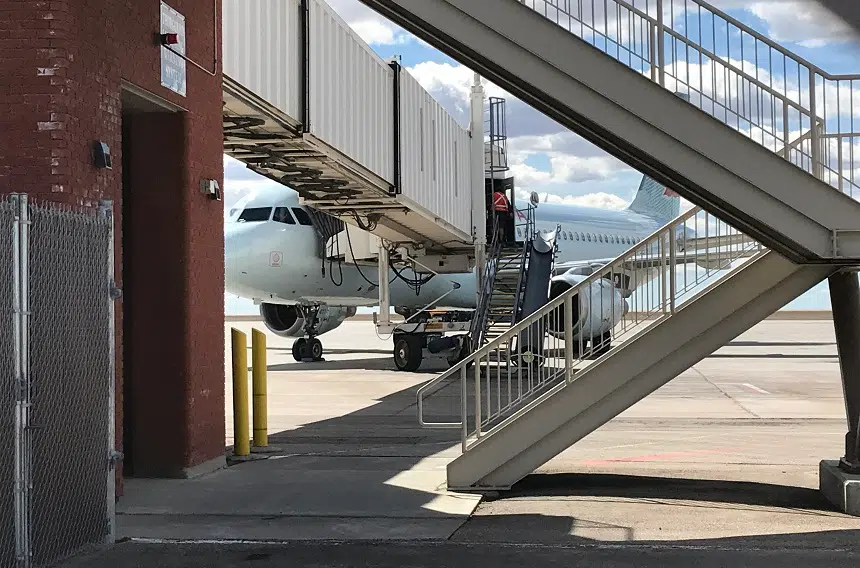A Regina MP was alarmed by what he heard from a major airline during a federal transportation committee meeting last week when discussing the potential loss of the city’s air traffic control tower.
Last Thursday, Regina-Wascana MP Michael Kram asked representatives from Air Canada and WestJet if the loss of the tower would force them to reconsider the number of flights into and out of the city.
“For operations, if there’s no control tower, the operations become more complex. It means that flights will go towards other airports. So it entails problems for our carriers,” David Rheault, managing director of government and community relations for Air Canada, told the committee.
Kram took those comments to mean the tower would be a factor in the airlines’ decisions. Should there be fewer flights, he said that would affect the city’s ability to host major events while slowing the movement of goods.
“They’ve already cut flights pretty much down to the bone. It’s a matter of how many flights will be returning to Regina as we pull out of the pandemic and demand increases,” he said in an interview Saturday.
On the other hand, WestJet’s director of government relations, Andy Gibbons, said “it’s not a straight line,” that the company flies to airports with and without air traffic control towers.
The fate of air traffic control in Regina has been in question since NAV Canada started a review of its service levels in multiple cities across Canada.
That has the Regina Airport Authority worried that air traffic control would be replaced with advisory services, a lower level of service that wouldn’t allow the airport to stay as busy.
Layoff notices issued to workers raised concerns that the non-profit corporation plans to close the tower, which NAV Canada has denied.
In an op-ed published in Saturday’s Regina Leader-Post, NAV Canada assistant vice-president Heather McGonigal wrote the study is about assessing whether advisory services would be better suited for Regina, considering “historical air traffic trends, including prior to COVID-19.”
McGonigal also wrote financial pressure is “not the driver” for the review.
Rheault told the committee the drop in air travel has resulted in hard choices that could “jeopardize” infrastructure long term. He said that is why measures are needed to preserve it.
That means a pandemic relief package for the aviation sector, Kram said, which could include subsidies of low-interest loans in addition to existing support through the federal wage subsidy.
“It’s important to note that Canada is the only G7 country that has not come up with some sort of support package for the air travel sector. All the other major western industrialized countries are doing it and Canada is really a laggard on this one,” he said.







